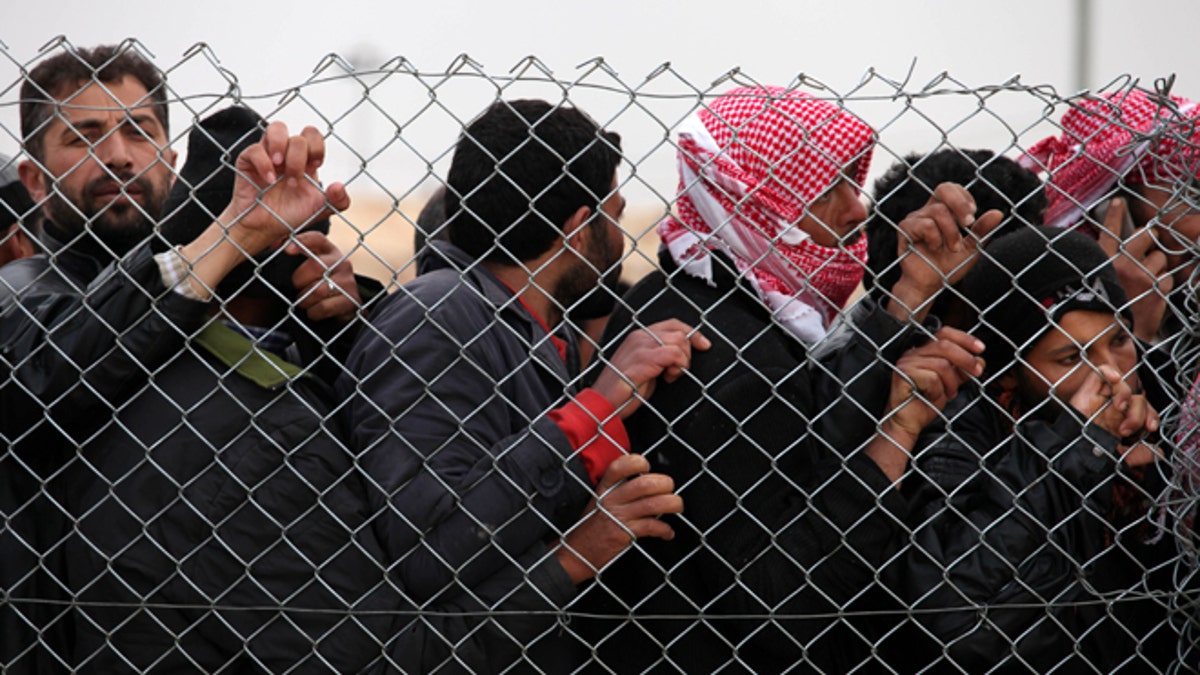
Syrian refugees wait for mattresses, blankets and other supplies, and to be assigned to tents at the Zaatari Syrian refugees camp in Mafraq, near the Syrian border with Jordan. (AP)
In the name of the fight against smugglers and the preservation of human lives, European Union (EU) countries will not resettle Syrian refugees unless other refugees, Syrian or otherwise, first hire smugglers and risk their lives to reach the Greek islands.
The EU and national actors missed yet another opportunity to announce concrete and substantial plans for proactively resettling (or at least relocating on a humanitarian and temporary basis) any sizeable number of Syrian refugees who are facing particular challenges in Turkey. What they agreed upon is instead a vague promise of resettling one Syrian refugee for each refugee who is deported back to Turkey from Greek islands. This might strike some as a disturbing paradox.
As national and EU authorities know too well, alternative maritime routes, possibly involving the Adriatic Sea or the Black Sea, are also in the making. This is especially true given the militarized fortification of the Greece-Turkey and Bulgaria-Turkey land borders.
It is also noteworthy that there is a cap on the maximum number of refugees to be resettled in EU countries this year according to this deal, with a target figure of 72,000 Syrian refugees to be distributed among EU countries. Such a figure, left to the presumed goodwill of individual governments, represents less than 3 percent of the Syrian refugee population currently hosted in Turkey. Additionally, it does not include Afghan and Iraqi refugees, among others, who instead continue to join Syrians in the maritime journey to Greek islands. And resettlements will be implemented only once “irregular crossings between Turkey and the EU are ending or at least have been substantially and sustainably reduced,” which risks serving as a pious procrastination to a never attainable future.
As previously noted, it will be fundamental to monitor the legal, humanitarian, and logistical challenges that are embedded in the actual implementation of the agreement with Turkey.
Greece, in particular, will continue to struggle with the needs and demands of the refugees who are already stranded on its soil, and who will continue to land on its islands. These include humanitarian needs, such as a dignified accommodation, but also legal needs. For the agreement excludes collective expulsions. In other words, each new arrival’s asylum case will need to be assessed on an individual basis. For this to materialize, courts will need to be set up and staffed, and refugees will need to be held, most likely against their will, on Greek territory.
Once again, a larger question has been unapologetically ignored by EU leaders: why, precisely, does the global responsibility for refugees need to remain so unequally distributed among Turkey (as well as Lebanon and Jordan) and EU countries?
